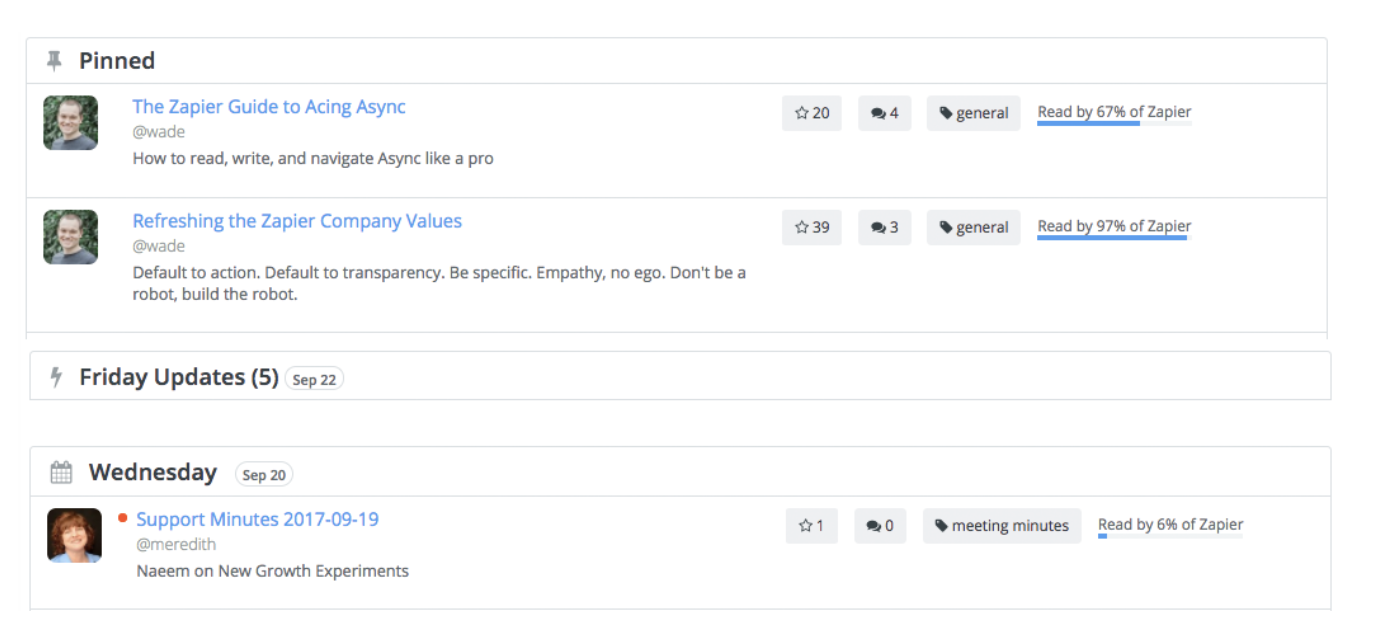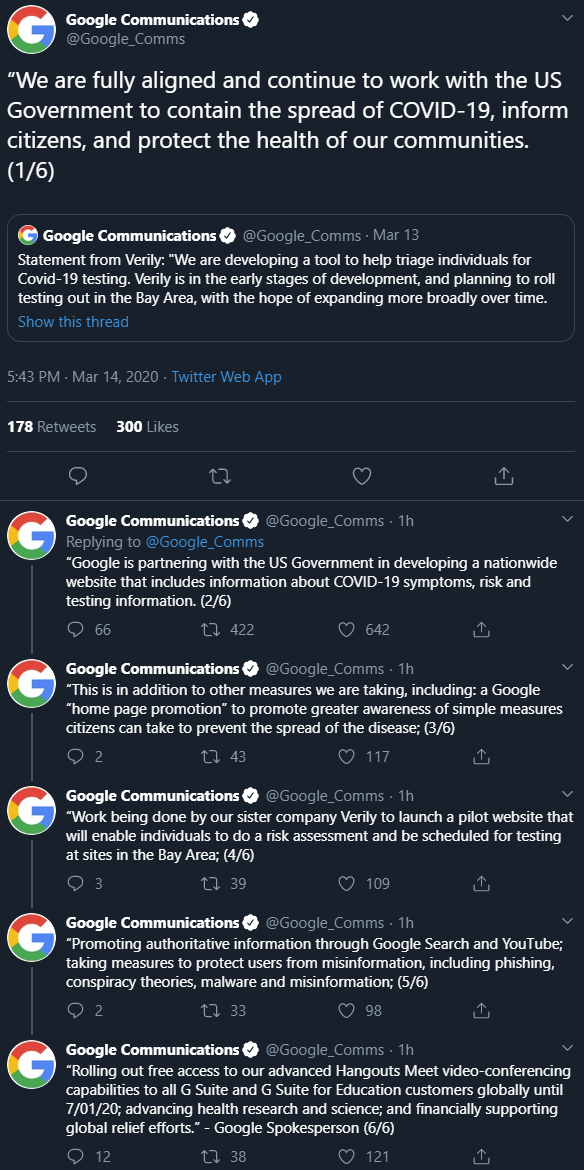Music
Trailers
DailyVideos
India
Pakistan
Afghanistan
Bangladesh
Srilanka
Nepal
Thailand
Iraq
Iran
Russia
Brazil
StockMarket
Business
CryptoCurrency
Technology
Startup
Trending Videos
Coupons
Football
Search
Download App in Playstore
Download App
Best Collections
Technology
Over the past week, one thing has become painfully clear for U.S. residents: COVID-19 is going to permeate every aspect of our lives for a long time to come. Those of us in and around tech have been noticing this for months now. First through the impact on our friends and colleagues in Asia, who have been facing fallout from the pandemic head-on for some time, and then through the domino effect on tech conferences.
First there was MWC, then FacebookF8, E3, WWDC. The list goes on and on. Yesterday, TechCrunch announced that we would be postponing a pair of our own events. It was the right thing to do, and increasingly not really a choice, to be honest, as more and more cities have banned large gatherings.
Tech has been keenly aware of COVID-19impact for a while now because being a tech company is being a global company almost by default. Now, however, the virusthreat has come to nearly everyoneback door. If you don&t yet know someone who has been infected with the virus, odds are good you will soon. This is our reality, for now, at least.
If therehope to be mustered from this event, itin the prospect of people helping people. Coming together, separately, at a safe social distance. The response of the current administration leaves much to be desired at the moment. As yesterdaypress conference involved praise of the &private sector& and a parade of high profile executives, the reality is that many of us may have to rely on corporates and execs to help fill in the gaps of gutted government departments.
There will be plenty of time to call out the inevitable opportunism of corporate America (and it looks like I&m going to have a lot more free time on my hands in the coming months to do exactly that), but for now, letnote some of the folks who are pitching in by donating supplies or easing some of the burden on a strained and uncertain population.
Alibaba co-founder Jack Ma today released a statement noting plans to donate 500,000 test kits and one million face masks. The donation follows similar ones to Japan and Europe, following the devastating impact on his own country.
&Drawing from my own countryexperience, speedy and accurate testing and adequate personal protective equipment for medical professionals are most effective in preventing the spread of the virus,& Ma said in a statement. &We hope that our donation can help Americans fight against the pandemic!&
Yesterday, Zoom CEO Eric Yuan announced that his video conferencing platform would be available for free to K-12 schools in Japan, Italy and the U.S. The move comes as the service is seeing a massive spike in downloads as many businesses and schools are attempting to adapt to working and learning remotely.
Earlier this week, Bill Gates, who recently left his position on Microsoftboard, announced the Bill - Melinda GatesFoundation was teaming up with Wellcome and Mastercard to fund treatments to the tune of $125 million. Yesterday, Facebook announced it was committing $20 million in donations to support relief efforts. Apple announced a similar $15 million in donations, along with letting customers skip the March payment on their Apple Cards without risking interest payments. IPS like AT-T, Charter, CenturyLink, Comcast, T-Mobile, Verizon, Sprint and Cox, meanwhile, have promised not to overcharge, charge late fees or terminate service, in an attempt to keep people connected.
Likely we&ll continue to see more such announcements in the coming weeks and months as companies struggle with impact to their workforces and bottom lines. Some will no doubt be more crass that others, but therelittle doubt that such gestures will be a big part of our ability to emerge from one of the scariest and most surreal moments in recent memory.
- Details
- Category: Technology Today
Read more: How big tech is taking on COVID-19
Write comment (95 Comments)[Editornote: Want to get this weekly review of news that startups can use by email? Justsubscribe here.]
Some startup investors are so uncertain about the current economic environment that they are hesitating to give us their forecasts on the record (this never happens). But others tell us they see the huge market gyrations and all the downstream effects of the novel coronavirus creating a great environment for long-term bets in the coming weeks. Why?
&Because with other investors departing the market, deal terms are getting better, the competition is less keen, [many investors] can do more due diligence and there are a lot of companies being built that have great growth prospects and are going to survive this global pandemic,& Danny Crichton detailed on Extra Crunch after calling around to his sources. &Itthe VC equivalent of buy (actually) low and sell high.&
Founders should expect big haircuts on valuation (the 20-30% range), he concludes, but should find plenty of investors considering the explosion of VC funding in recent years — provided the company fundamentals show a path to long-term success. Thatwhat many other investors told Sarah Buhr on the record in a followup report.
Still trying to understand the economic big picture of the virus and its global impact? Danny teamed up with Alex Wilhelm to put together this primer on TechCrunch covering the last few months in the markets.
Looking to try remote-first fundraising? Natasha Mascarenhas talked to a range of VCs about how they are approaching deals through Zoom (hint: itmostly for early-stage investing, if at all).
On that point, the consensus from what our staff hears this week is that most investors are ultimately going to want to meet you in person before making the big decision, still. Because they&ll be working with their portfolios long after this pandemic lasts.

Image via Getty Images / alashi
Will the coronavirus lead to uncapped data for all?
Some ISPs today are ready to temporarily ease pricing and lift data caps to avoid shutting the public off during emergencies — and they&re widely expected to do so without overloading their networks and destroying their businesses models. So, once the public sees that the large monopolies/duopolies in the biz can easily handle all of the additional traffic without the aggressive pricing scheme included, will they stand for going back to the old caps?
Thatthe intriguing argument made in TechCrunch this week by Devin Coldewey, who believes that the pandemic may end up ushering in a more accessible and connected world for all. Indeed, at least one FCC commissioner is thinking about the same thing. 
Zapier and YouNeedABudget share key tactics for the remote-first startup
&What we noticed was that product was getting shipped, customers seemed to be happy, more customers were coming in, revenue was coming in and the team was happy. All the things you kind of look for, to say ‘yeah, this is good…& none of it seemed to be hindered [by the lack of office]. So we looked at that and said, ‘you know what? I think this remote thing… we should just do it.'&
ThatZapier CEO Wade Foster sharing the backstory of how the web-app integration company has grown to 300 people. In a detailed interview on Extra Crunch with Greg Kumparak, he breaks down the evolution — and shows off an internal tool that they built to be like Slack, but for over weeks not minutes to help solve remote-first strategic communication problems. Itcalled, fittingly, Async.
Greg also caught up with YouNeedABudgetJesse Mecham about his 115-person remote team. &You get talent,& was the big selling point to him. &You get the best talent. Itsuch a game-changer; we get to compete with large companies that have muchlarger hiring budgets because we accommodate peoples& locations. It&ssuch a win for us, and I really hope the big… you know, Apple, Microsoft, Facebook and the like, they have lots of different offices, but I really hope they never embrace being remote completely because it gives us smaller teams with less cash an opportunity to be appealing on a different factor as far as work/life balance goes. Yeah. Itthe hiring, by far.&
We have more tips out this week, including a general guide to considering how to help employees make the remote transition, and a security guide for remote workers.
Stay tuned for ongoing coverage. TechCruncheditorial team has been remote-first all decade long, and we&ve been making it a focus as the industry moved in this direction overall more recently.

Yes, TechCrunch events are affected
For those who have been looking at attending our in-person events, and wondering what we&re gonna do….
- TC Early Stage(San Francisco, originally April 28) has been rescheduled forJuly 21at the Hilton Union Square.
- TC Sessions: Mobility(San Jose, originally May 14) has been rescheduled forOctober 6at the San Jose Theater.
Disrupt is still slated for September 14-16 in SF, too. But we are considering all the options that you can imagine we are considering.
However, we are actively accepting applications from startups for MobilityPitch Night event.
We hope to see you in person later this year! See this page for regular updates to event plans based on the course of the pandemic.
Across the week
Extra Crunch
Edtech startups prepare to become ‘not just a teaching tool but a necessity&
How to buy back your startup from a tech giant like WeWork
Why so many robotic startups fail, and what can be done about it
Dear Sophie: Should I marry, or immigrate based on my accomplishments?
Startup founders are building companies on WhatsApp
TechCrunch
All the startups threatened by iOS 14new features
China Roundup: Enterprise tech gets a lasting boost from coronavirus outbreak
How the information system industry became enterprise software
Equity Monday: Circuit breakers, seed rounds and startup valuations
How the coronavirus outbreak will stress-test startups
#EquityPod
From Alex:
Herewhat we went over:
- The 11-year bull market is over, andUber and Lyft suffered from the fallout.
- Whatmight be ahead for startupsas the public markets fall apart.
- New funds fromNEAandFelicis.
- How to raise moneyin the current remote-work climate.
- TheSequoia-Finix dustup.
- Details
- Category: Technology Today
Read more: Startups Weekly: Investors are excited to write checks during the pandemic
Write comment (96 Comments)Apple today put in place more COVID-19-related safeguards — this time centered on its App Store. In a note posted to its developer community, the company explains that it will take steps to vet submissions of apps focused on the global pandemic that has begun to impact nearly every aspect of life across the globe.
&To help fulfill these expectations, we&re evaluating apps critically to ensure data sources are reputable and that developers presenting these apps are from recognized entities such as government organizations, health-focused NGOs, companies deeply credentialed in health issues, and medical or educational institutions,& the company explains. &Only developers from one of these recognized entities should submit an app related to COVID-19.&
In addition to assessing content and restricting the number of developers who can submit, the company is also barring the release of entertainment apps and games looking to capitalizing on the ubiquitous and life-threatening subject matter.
Apple has also asked developers to tick the &Time-Sensitive Event& option, in order to help expedite the submission, given that some may be aimed at helping users in time of crisis. The company will also be waiving some annual membership fees for non-profit orgs and government agencies looking to develop apps related to the outbreak.
A cursory search of &COVID& and &coronavirus& finds a number of apps using the terms, ranging from case trackers, news applications, a reminder to wash hands and some gaming titles.
- Details
- Category: Technology Today
Read more: Apple sets restrictions for COVID-19-related apps
Write comment (92 Comments)After President Trump announced that the government was working with Google to build a coronavirus screening site that was at the core of the administration testing process, Google quickly corrected this and said that it was actually Verily, Alphabethealth division, that was working on this and that the site wasn&t ready for a nationwide rollout yet.
Today, Vice President Pence provided a bit more detail, tough he didn&t removes all of the confusion around this. A pilot of this screening site will launch for the Bay Area on Monday, March 16, he said, and direct people to local drive-through testing sites if necessary.
He reiterated that the government is working with Google on this (though my guess is that the VP, just like most people, isn&t all that clear on the complicated company structure that is Alphabet) .
&I know Google issued a statement that they are planning to launch a website,& Pence said. &I think they gave a date of Monday, March 16th and we&re working literally around the clock and I know that our whole team is working on the public and private partnership. Couldn&t be more grateful to all at the hard-working people at Google who are helping to put this website together.& He added that the White House will have more to share about this tomorrow, Sunday, at 5pm ET.
Debbie Birx, the White House Coronavirus Response Coordinator, noted that this is not just a simple &checkbox website& but that it actually goes through &critical symptoms and thatwhy we&re giving ourselves the weekend to get it put up.&
Separately, the White House also told us that the administration is indeed working with Google to develop this site and most of this lines up with the statement we received from Verily yesterday. Hopefully, we&ll know more details after tomorrowbriefing.
Update (6:40pm PT):
The official Twitter account of Googlecommunications department also posted the following statement tonight. In it, Google says it is &partnering with the U.S. government in developing a nationwide website that includes information about COVID-19 symptoms, risk and testing information.& This is not, however, the screening site that Verily is working on, Google stresses.

Our earlier coverage:
- Details
- Category: Technology Today

Given its name, you might expect &Devs& — which launched earlier this month on the newFX on Hulu — to be a &Silicon Valley&-style sitcom about the tech industry. And there are indeed some delightful moments where &Ex Machina& writer-director Alex Garland pokes fun at San Francisco and tech culture.
But the prevailing mood is one of mystery and dread. The show takes place largely at a fictional quantum computing company called Amaya, run by its brooding CEO Forest (played by Nick Offerman), which employs Lily (Sonoya Mizuno) and her boyfriend Sergei (Karl Glusman) . Amaya is also home to a division known as Devs — a group thatmysterious enough that most employees don&t even know what the team is working on.
On the latest installment of the Original Content podcast, TechCrunch Events Director Emma Comeau joins us to discuss the three episodes that have aired thus far.
While ittoo early to evaluate how the show will answer its big questions, we&re all fans, thanks to its eerie visuals, impressive performances (particularly from Offerman and Mizuno) and the tantalizing way that it lays out its mysteries — during the spoiler discussion, we spent most of our time puzzling over clues about the ultimate goal of the Devs team.
And although the show is certainly tense, itactually something of a relief to spend a few hours worrying about sinister tech companies, rather everything else happening in the world outside.
You can listen in the player below, subscribe using Apple Podcastsor find us in your podcast player of choice. If you like the show, please let us know by leaving a review on Apple. You can also send us feedback directly. (Or suggest shows and movies for us to review!)
If you want to skip ahead, herehow the episode breaks down:
0:00 Intro 3:26 &Devs& review (mild spoilers) 26:20 &Devs& spoiler review/speculation
- Details
- Category: Technology Today
Read more: Original Content podcast: ‘Devs’ is a strange and delightful technothriller
Write comment (90 Comments)NASA has completed the testing process meant to simulate performance in in-space conditions for its Orion crew spacecraft, developed by Lockheed Martin and designed to carry crew on the agencyArtemis missions. The missions aim to return the next American man and deliver the first American woman to the surface of the Moon. It reportedly &aced& the tests according to NASA, which include thermal vacuum and electromagnetic interference performance checks.
Obviously, itnot business as usual at NASA amid the ongoing coronavirus situation (it isn&t business as usual anywhere), but NASA still managed to finish up the testing it needed to do at its Glenn research facility in Ohio. Glenn is the site of world-leading testing facilities that simulate flight conditions, including wind tunnels and vacuum chambers, and Oriontesting completion at the facility means itnow ready to move on to NASA Kennedy and Florida.
It&ll fly to Kennedy aboard NASASuper Guppy aircraft, which is a specially-built cargo aircraft with an extremely wide body designed for the purposes of transporting larger-than-normal cargo just like the Lockheed-built Orion capsule.

LONG BEACH, CA & DECEMBER 09: The B-377-SGT, also known as the &Super Guppy Turbine,& sits at BoeingC-17 plant at Long Beach Airport on Tuesday. The Super Guppy is notable for its prominent forehead and enormous mid-section, as well as four turbine engines and propellers. The plane is operated by NASA and used to transport large cargo, such as components for the International Space Station. The Super Guppylast visit to Long Beach was during the Apollo missions.///ADDITIONAL INFORMATION: Slug: SuperGuppy.1210.jag, Day: Tuesday, December 9, 2014 (12/9/14), Time: 10:51:53 AM, Location: Long Beach, California & B-377-SGT, &Super Guppy Turbine& & JEFF GRITCHEN, STAFF PHOTOGRAPHER(Photo by Jeff Gritchen/Digital First Media/Orange County Register via Getty Images)
NASA in general appears to be progressing with its preparations for both Artemis, as well as for other ongoing key programs like its Commercial Crew program, which will see privately operated rockets fly astronauts to the International Space Station for the first time.
It has taken additional precautions to ensure the health of its astronauts meant to fly on the first crewed Commercial Crew mission, however, and its NASA Marshall facility also announced today that itlimiting access to &mission-essential personnel& after one staff member tested positive for COVID-19 on Friday night.
- Details
- Category: Technology Today
Read more: NASA’s Orion spacecraft completes testing ahead of Artemis 1 Moon mission
Write comment (94 Comments)Page 1239 of 1446

 9
9





